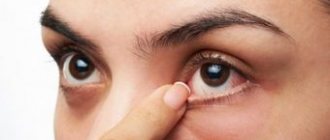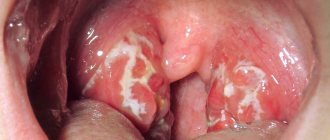Frequent outbursts of anger and excessive aggressiveness are seemingly normal phenomena in everyday life. On the other hand, increased irritability may be a signal of the development of a mental illness. Attacks of anger and tearfulness can occur either out of the blue or due to fatigue or stress. Irritability is a consequence of psychological and physiological problems. In most cases, increased nervousness does not interfere with normal life in society. However, if it interferes with work, career building, or normal family relationships, you should think about visiting a psychotherapist.
Treatment of irritability
The Salvation Clinic provides treatment for irritability using proven techniques and individual programs, as well as modern pharmacotherapy. We have good personnel and technical potential; we can reliably establish the reasons that caused inappropriate behavior. We are recommended for our professionalism and responsibility. Other reasons to contact us for help:
- the possibility of treatment both in a hospital and on an outpatient basis;
- affordable cost of services;
- courteous attitude towards the interests of patients;
- 24-hour psychological support;
- assistance with hospitalization.
Contacting our center is a chance to change your life for the better, to know yourself, to achieve harmonious coexistence with the outside world. With the support of experienced mentors, you can learn to control your behavior and eliminate factors that provoke behavioral disorder.
Treatment of aggression and irritability
Aggression appears as a result of interpersonal conflicts. A negative attitude towards another person can appear at the mere thought that he may wish harm, although in reality this may not be the case. Negative emotions can accumulate. In most cases, it is enough to give a person the opportunity to simply throw out the accumulated negativity. Sports activities are good for this.
There are certain psychotherapeutic techniques that allow you to achieve peace of mind in hot-tempered, irritable people. It is important that a person learns good manners, is able to show resistance to stress in conflict situations, and can calmly react to basic things.
Treatment of increased irritability (senile)
Treatment of aggression in older people should be accompanied by the use of drugs that have a sedative effect. Family psychotherapy, support of loved ones and appropriate care are of no small importance. The staff of our clinic will be able to provide the necessary care around the clock. We take a responsible approach to our work and do everything possible so that our patients do not need anything and are able to appreciate all the benefits of a “dignified” old age.
Treatment of severe irritability
Sleep is the most effective. After a good night's rest, you always feel a surge of strength and energy. During sleep, the body's energy resources are renewed and metabolism is normalized. If you are very irritable, you should stop smoking and drinking alcohol. They only create the illusion of eliminating the attack of anger. It seems to a person that when he smokes, he calms down. In fact, the problem is only getting worse. Smoking causes oxygen starvation of brain cells and other vital organs, which can subsequently cause depression. This is a dangerous mental disorder. In some cases, patients exhibit suicidal tendencies. The patient is deprived of the ability to “see” the world in bright colors and enjoy life. He is constantly negative.
The specialists of our clinic will help you get rid of addiction. Classic treatment methods are used (cognitive psychotherapy, behavioral approach), as well as such radical measures as hypnosis, when the doctor deliberately intrudes into the patient’s consciousness in order to change his behavior patterns and habits.
Adjusting your diet is also important. Food containing various chemical additives (dyes, preservatives) increases irritability. Preference should be given to natural products.
Treatment of severe irritability in women
Strong irritability is more common among representatives of this gender group. Women are more susceptible to self-criticism and strive to achieve perfection in everything; it is important for them to please others. During psychotherapeutic sessions, you can achieve a rethinking of life priorities and direct aspirations in a more useful direction. After eliminating the provoking factor, a significant improvement in the condition will be immediately noticeable.
Definition
Irritation serves as a defense mechanism for a living creature, which is guaranteed by a conditioned reflex. But the line between a healthy response and destructive behavior is very thin. If you poke an amoeba with a needle, it will contract with its entire body - this is a protective biological process, its reaction to an irritating external factor. In developed beings, this reaction involves a physical and psychological aspect. It is accompanied by attacks of aggression, anger, hatred, sudden movements and statements.
Are you ready to stop thinking about your problem and finally move on to real actions that will help you get rid of your problems once and for all? Then perhaps you will be interested in this article .
Dissatisfaction and stress are often rooted in failure or unsatisfaction of some needs. The personality strives for something new, necessary, but instead receives everyday life, which it refuses to accept. She manages to cope with her irritation. But if a person sees these factors everywhere, notices them in everything, and does not stop thinking about them, then sooner or later the extreme line approaches.
Causes of irritability
Social provoking factors include deliberate incitement, propaganda of violence in the media, incitement of ethnic conflicts, racist calls, encouragement to carry weapons. The external environment can also provoke an attack of anger. A negative reaction occurs to:
- heat,
- cold,
- temperature difference,
- strong wind,
- noise,
- crowded public transport
- stuffiness,
- heavy smoke from cigarette smoke,
- unpleasant smell.
A person may also have a genetic predisposition to aggression. Irritability is provoked by various prejudices passed on from generation to generation.
Symptoms
Symptoms of irritability and nervousness can vary greatly. Major appearances include:
- The habit of speaking in a raised voice (loud, fast speech, shrill voice breaking into a scream), active, sudden movements.
- Bad mood, anxiety, tearfulness, unmotivated aggression, anger, panic, apathy.
- General weakness, poor night sleep.
- Decreased interest in communicating with people, work, hobbies.
- Acquired tendency to perform various types of repetitive actions (tapping fingers, swinging legs).
- Increased muscle tone, muscle blocks, increased heart rate, increased sweating , headaches .
- Decreased libido .
Irritability and aggression in women
Drinking alcoholic beverages can lead to aggressive behavior. More terrible is female alcoholism. The patient loses his mind, can commit any immoral act, sober up and not even remember what happened. Addiction is characterized by complete degradation of personality. Increased irritability in women can also be triggered by a craving for drugs. In this case, all a person’s actions and thoughts come down to searching for the next dose. Fear of withdrawal drives immoral actions. Excessive aggressiveness may be caused by the drug.
Tests and diagnostics
The diagnosis of “Irritability and anger” is made by psychotherapists and psychiatrists. To obtain and analyze information about the patient’s emotional state, the following are used:
- A conversation with the patient and his relatives, during which the period of onset of outbursts of irritability is clarified, how they manifest themselves, what provokes them, how they affect the patient’s life and attitude towards them. Relatives may also report the patient’s increased conflict (she has become nervous and irritable, or her husband has become irritable and angry), difficulties in communicating with him, and behavioral characteristics.
- Observation. During communication, the doctor notes the presence of external signs of irritability: harshness of speech, movements, change in voice timbre, fussiness/restlessness.
- Psychodiagnostic questionnaires. For this purpose, an irritability test is used to assess emotional and personal characteristics. These are specially developed questionnaires: Bass-Darki, Cattell, FPI (contains 12 scales, including scales of irritability, openness and balance). The answers received allow us to assess the level of emotional stability, tendency to affect, resistance to stress, attitude to the social environment, and also determine the level of self-criticism.
- Projective tests. Used if the patient denies the presence of increased irritability. He is offered projective tests that allow him to identify unconscious/hidden characteristics of character/personality (Ronzweig's frustration test, Wagner's hand test, etc.).
Causes of increased irritability
Increased irritability can occur for a variety of reasons. Most often this is due to improper planning of your own time. Thus, with monotonous and monotonous work, the inability to properly rest or allocate time for this can lead to regular rush jobs, and, accordingly, chronic fatigue and increased irritability.
A person who is in such conditions increasingly experiences anxiety, weakness and sudden mood swings. He can be lethargic and apathetic, and the next moment he can be irritated over some little thing. His health worsens, he feels hot and cold. Sometimes the cause of increased irritability can be an unstable psyche. They get irritated even when a small difficulty arises. If the trouble is more serious, then they simply lose their temper.
You are too tired physically
A lot of physical labor or training and little time for recovery - this is the right recipe. Are you getting too much exercise? / MedlinePlus fatigue and bad mood. When your body is overloaded, the stress hormone cortisol begins to be actively produced. Among other things, it causes irritability and anxiety.
What to do
Slow down. Rest at least 6 hours between workouts and be sure to give yourself a full day off (completely free from physical labor) at least once a week. If you feel that your irritability may be due to physical fatigue, take a longer break. For example, take a vacation.
Causes of severe irritability
Severe irritability can occur for the following reasons:
- Increased activity of the thyroid gland. It causes increased production of a hormone that affects many body functions, including brain function.
- High concentration of cholesterol. More precisely, it is not the cholesterol itself that is to blame, but the drugs taken to reduce its level.
- Diabetes. Low sugar levels lead to metabolic imbalance and frequent outbursts of anger.
- Depression. Constantly being in a bad mood cannot but affect the reaction to certain events.
- Suffered a stroke. This phenomenon is not unique, because a stroke leads to the death of brain cells. If the frontal lobe, which is responsible for controlling emotions, is damaged, then a person can very easily lose control in almost any situation.
Contact us, don’t be left alone with the problem, we will help you understand yourself and improve your life!
Mood swings and sleep disturbances
Anger that cannot find a way out and constant internal anxiety often become causes of insomnia. Thoughts spin “like a squirrel in a wheel,” making it difficult to relax and fall asleep. Sleep disturbances increase nervous and physical exhaustion, causing increased irritability and tearfulness.
In such a situation, many resort to sleeping pills and sedatives. Unfortunately, only a small list of modern drugs is relatively safe for health, and not a single sleeping pill can solve the problem at the root.
Sleep disorder specialists are well aware of:
- Depression is to blame for 20-25% of all insomnia;
- in 10-15% of cases, insomnia is caused by anxiety disorders;
- in another 5-10%, sleep disturbances are caused by alcohol, drugs or medications;
- in some cases, insomnia is a symptom of schizophrenia and schizoaffective disorders.
Thus, in almost half of all cases of insomnia, patients require the help of a psychiatrist, psychotherapist or psychologist. That is why, at the Rehabilitation Clinic in Khamovniki, in the sleep medicine department, consultations are conducted by specialists in the field of somnology, who use cognitive behavioral therapy techniques in the treatment of sleep disorders.
Prevention
Preventive measures to maintain psycho-emotional stability include:
- Normalization of lifestyle (avoid nervous overload/stressful situations). Get a full night's sleep, allocate time for rest and leisure, and take daily walks in the fresh air. A balanced diet without excess coffee and tea.
- Regular exercise, sports, hardening procedures (douches, contrast showers, baths).
- Regular intake of vitamin and mineral complexes.
List of sources
- Maralov V. G., Sitarov V. A. Irritability towards people: Typology and mechanisms // Integration of education. 2021. T.22. No. 3. pp. 493-507.
- Levitsky A. G., Matveev D. A., Potsipun A., Shabaev A. V. Search for relationships between irritability, balance and level of health. Scientific notes of the University named after. P.F. Lesgafta. — 2015.— No. 3 (121).
- Smirnov, V.M. Neurophysiology and higher nervous activity of children and adolescents. aid for students defectol. fak. higher ped. textbook institutions / V.M. Smirnov. - M.: Publishing House, 2000. - 400 p.
- Vorobyova O.V. Stress and adaptation disorders // RMJ. 2009. T. 17, No. 11. pp. 789-793.
- Ellen Leibenluft. Irritability in children: what we know and what we need to know. World Psychiatry. 2017; 01: 100-101.










